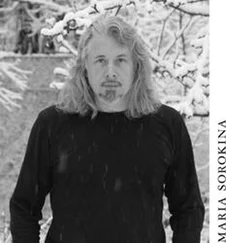[T]here are people (even such as are not given to prayer, but who have this sort of power, or gain it during sickness) who see light even in the darkest of rooms, as though it streamed from every article in it [this is the same as the logos of things discussed in earlier lectures, Bibikhin], and see things by it [their invisibility means that they are radiating their essence]; who see their doubles 16and enter into the thoughts of other people. (117)
The soul released from prison lives in a state of stable, constant celebration.
I felt there was no happier person on earth than I, and I doubted if there could be greater and fuller happiness in the kingdom of Heaven…. Everything drew me to love and thank God…. Sometimes I felt as light as though I had no body and was floating happily through the air instead of walking. Sometimes when I withdrew into myself I saw clearly all my internal organs, and was filled with wonder at the wisdom with which the human body is made. Sometimes I felt as joyful as if I had been made Tsar. And at all such times of happiness, I wished that God would let death come to me quickly, and let me pour out my heart in thankfulness at His feet in the world of spirits. (118)
This part of the text would arouse the ire of Olga Sedakova, who is repelled by the Pilgrim and scents the ‘stench of death’ coming from him. 17She is disturbed that his tales seem to be turning into something akin to scripture.
It is difficult to discuss the nature of the change that comes over the Pilgrim because it is again connected with the theme of the double, which has been little researched. They ‘see their doubles and enter into the thoughts of other people’.
The self-acting prayer in my heart never hindered things, nor was hindered by them. If I am working at anything the Prayer goes on by itself in my heart, and the work gets on faster. If I am listening carefully to anything, or reading, the Prayer never stops, at one and the same time I am aware of both[!] just as if I were made into two people, or as if there were two souls in my one body. 18Lord! what a mysterious thing man is! (56–7)
This discovery of the two became possible precisely because they had come into harmony. Otherwise they would not have seen each other and would not have been surprised to find they were different. The double is, in fact, no less strange and remote, we read in the continuation of that paragraph, than a wolf in the forest. Deep in the forest, a wolf attacks the Pilgrim but runs away because it feels the contact with the change that has occurred in him; it can feel its power. The double is as inaccessible as the wolf in the forest.
Is it possible to reach the double through compulsion, as it is possible to force oneself to repeat a prayer 12,000 times a day? There is a distinct and comprehensive answer. The double, my double, simply will not compel himself to do that or anything else, any more than the wolf in the forest. Unceasing prayer is something very different from an exercise.
1 1. The book Otkrovennye rasskazy strannika dukhovnomu ottsu svoemu was written by an unknown author. The narratives were copied on Mount Athos by Hegumen Paisii, abbot of the Cheremiss monastery of the Kazan Diocese and published under the aegis of that monastery. A fourth edition was published in Moscow in 1884. The narratives were twice reprinted abroad by YMCA Press in Paris and it may have been this edition that Bibikhin used. References in the present volume are to The Way of a Pilgrim and The Pilgrim Continues His Way, tr. Reginald M. French, 2nd edition (London: SPCK Classics, 1954, reissued 2012). This was first published in the UK in 1931. [Russian editors, Tr.]
2 2. See Alla Selawry, ‘1. Moliashchiisia predstoit Bogu’, in Neprestanno molites’i O molitve Iisusovoi (Munich: Bratstvo Prep. Iova Pochaevskogo, 1990) ( https://omolenko.com/imyaslavie/selavry.htm). [Tr.]
3 3. Ilarion (c. 990–c.1055) was a metropolitan of Kiev in mediaeval Rus. He held his post during the Great Schism of the eleventh century between the Catholic and Eastern Orthodox churches. [AM]
4 4. See Ol’ga Sedakova, ‘Hilarion, the Metropolitan of Kiev’, in Neil Cornwell, ed., Reference Guide to Russian Literature (London: Fitzroy Dearborn, 1998). [Russian editors]
5 5. Rousseau’s essay ‘A Discourse on the Sciences and Arts’ won a contest held by the Academy of Dijon for responses to the question ‘Has the Restoration of the Sciences and Arts Contributed to the Purification of Morals?’ See Jean-Jacques Rousseau, The Social Contract and Discourses, tr. G.D.H. Cole (London: Everyman, 1993). [Russian editors, Tr.]
6 6. The Way of a Pilgrim, p. 57. Page references hereafter are given in brackets in the text. [Russian editors, Tr.]
7 7. Igumen Valaamskogo monastyria Khariton, Umnoe delanie. O molitve Iisusovoi (Serdobol’: Sortavalassa Oy Raamattutalon, 1936), as related by Alla Selawry, ‘Neprestannaia umnaia molitva’, tr. from German in Neprestanno molites’l O molitve Iisusovoi (Moscow: Lara, 1992), p. 37. [Russian editors]
8 8. Alla Selawry, ‘4. Nadezhnyi kliuch k molitve’, in Neprestanno molites’l (1990). [Tr.]
9 9. Ibid. [Tr.]
10 10. Ibid. [Tr.]
11 11. Bibikhin’s italics. [Russian editors]
12 12. Neprestanno molites’l (1992), p. 130. [Bibikhin] Also mentioned in The Way of a Pilgrim, on p. 54. [Russian editors, Tr.]
13 13. Bibikhin’s italics. [Tr.]
14 14. Bibikhin’s italics. [Tr.]
15 15. See Vladimir Bibikhin, Uznai sebia (St Petersburg: Nauka, 1998); Vitgenshtein: smena aspekta. [Russian editors]
16 16. Bibikhin’s italics. [Russian editors]
17 17. Source not established. [Tr.]
18 18. Bibikhin’s italics. [Russian editors]
Lecture 3, 23 September 1997
If unceasing prayer is the unearthing, the digging down to something that already exists in everybody (‘There is no need to learn it, it is innate in every one of us,’ The Way of a Pilgrim, p. 61, Tr.), integral to breathing, the beating of the heart, eating and moving, then a simple understanding of faith reveals itself to us: it is trusting what already exists. The law of our being is religion in the sense of attentiveness. (Re-ligio means attention. 1) Our primary bond (our belonging, our relationship) is with God. That means we need look no further than within ourselves (there is no need to consult an encyclopaedia or ask anyone else) to know what God is. That is tantamount to asking someone else who I am. It is within us always, although most often in privation, while we are paying dearly in various ways for straying from where our religious nature always is.
Faith is like an exposing of things unseen. We are usually quite unaware of the fact that we are breathing, that our heart is beating, or of eating. If we then decide to regulate our breathing, or our heartbeat, or to follow a special diet, to subordinate them to our conscious mind, that implies emphatically that we are only now making a start, that up till now we have not been doing any of these things. That, needless to say, is a double-dyed, blatant untruth, as if we are trying to get in our alibi in advance. ‘No, no. Where I was – that wasn’t me; I’ve only just now turned up where I am. The reality is that when I was born I, as a human being, cried from fear of breathing, was comforted when my breathing became regular, and fell asleep; then I cried again in a panic when I became hungry, but calmed down when I was given milk.’
But all that was not yet in metric space; it was still in the forest, inside matter and, before that, inside my mother. Respiratory gymnastics and dietary concerns already belong to metric space. An unnecessary binding, an overly metric approach to the things of the forest, a complicated entangling that fetters mind and body – they all have a beginning, so they will all have an end. The practising of unceasing prayer does not fetter but unfetters our breathing. It does not unfetter it in the sense of some ridiculous ‘expansion and liberation of breathing’, which is only going to lead to hyperventilation of the lungs and ultimately to deranging the way they work, but in the sense of leaving the body to do what the body does well. The God with whom people converse in prayer is, after all, that same God who created the body the way it is. We do not know exactly how that is, but we know that as it is we can offer it to the service of God. We are not conversing with God in order to convey our thoughts to him, because he undoubtedly already has plenty of thoughts of his own, but in order to make our confession, to offer ourselves sincerely: look, this is me. People speak to God with their whole being, just as they are, with their whole existence, their very presence. So they do, ladies and gentlemen.
Читать дальше












